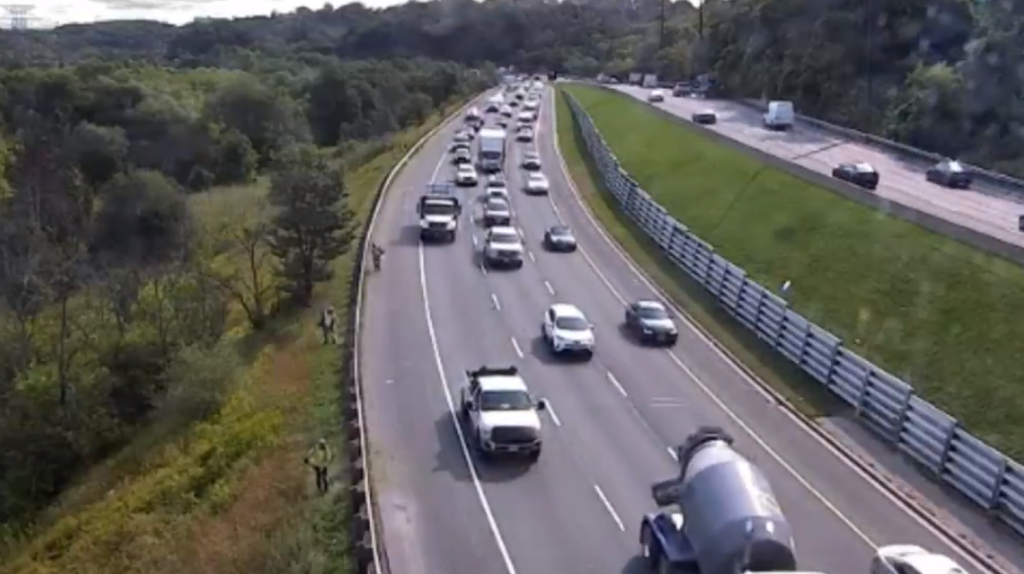Rwanda deportation demonstrates problems with Canadian system: Kenney
Posted January 25, 2012 5:51 am.
This article is more than 5 years old.
The Conservative government promised a tougher deportation policy after a man accused of inciting the 1994 Rwanda genocide managed to spend nearly two decades in Canada.
The promise came Tuesday while an airplane carrying Leon Mugesera touched down in Kigali, Rwanda, under heavy security and into the glare of a media pack eager to chronicle the long-awaited return.
Immigration Minister Jason Kenney expressed regret over how long the process had taken.
The minister, holding a news conference thousands of kilometres away from that hectic scene in Kigali, promised imminent legislation to avoid a repeat of the Mugesera saga.
“He (Mugesera) is a kind of poster child for what’s wrong with the system but he isn’t the only one,” Kenney told reporters in Montreal.
“(War criminals) deserve due process but they do not deserve to abuse the process… Everyone deserves their day in court. Mr. Mugesera had 17 years in court.”
The federal government has released, in recent months, controversial watch lists of war-crimes suspects deemed inadmissible to Canada and being sought for deportation.
The promise of tougher deportation rules was originally included in the Conservatives’ last election platform.
Kenney said the Conservative government would table a bill this year to “streamline” the process for revoking citizenship. He said it would fast-track deportations and shorten the appeals process for those charged with serious crimes or with connections to terror or organized crime.
The government has also proposed toughening immigration and criminal laws as well as parole rules to allow courts to deport someone who reaches parole eligibility. Also, it plans to amend the International Transfer of Offenders Act so that foreign offenders can more easily be sent abroad without their consent.
Kenney said that, for over a decade, Mugesera abused tools available to him to avoid deportation, something that needs to change.
“Canada should not be a dumping ground or a safe haven for the world’s evildoers. We are happy that we have finally managed to remove Mr. Mugesera from Canada,” Kenney added in a statement.
“We hope that his ilk will never set foot on our soil again. It is unfathomable that it takes nearly two decades to deport an architect of the Rwandan genocide from our country.”
Online witness accounts from the Kigali airport said Mugesera was handed over to Rwandan authorities by Canadian counterparts under heavy guard, before being whisked away in a waiting vehicle.
Kenney said all necessary steps have been taken to ensure Mugesera won’t be tortured by current Rwandan authorities. Concern that he might face extra-judicial punishment had delayed his expulsion.
Mugesera is wanted in Rwanda for allegedly inciting genocide and for committing crimes against humanity.
He was a Rwandan political operative who delivered a fiery anti-Tutsi speech in 1992, two years before the genocide, referring to them as cockroaches and suggesting they should be exterminated.
In Quebec City, Mugesera’s former lawyer Guy Bertrand continued to insist on his ex-client’s innocence. He suggested undue political pressure might have prompted the expulsion.
Bertrand accused Rwandan President Paul Kagame, a former Tutsi rebel fighter, of wanting to destroy Mugesera because he views him as a political rival and fears that the prominent Hutu academic might re-enter politics.
“It’s not the justice system that’s at fault here; it’s the political system,” Bertrand said.
“Can we be assured that there wasn’t undue political pressure that Mr. Mugesera be deported from Canada?”
Bertrand, who continued to claim Mugesera’s innocence, said his former client won’t get a fair trial in Rwanada and should have been tried in Canada, where he says Mugesera would have been acquitted.
That’s something Kenney rejected.
Unless there are exceptional circumstances, the minister said, the preference is for the accused to face justice in the country of origin or before a competent international tribunal.
He said that’s the case for a host of logistical reasons, but also for basic justice.
“The people of Rwanda have a right to see this man tried before their own court and brought to justice in their own country,” Kenney said.










